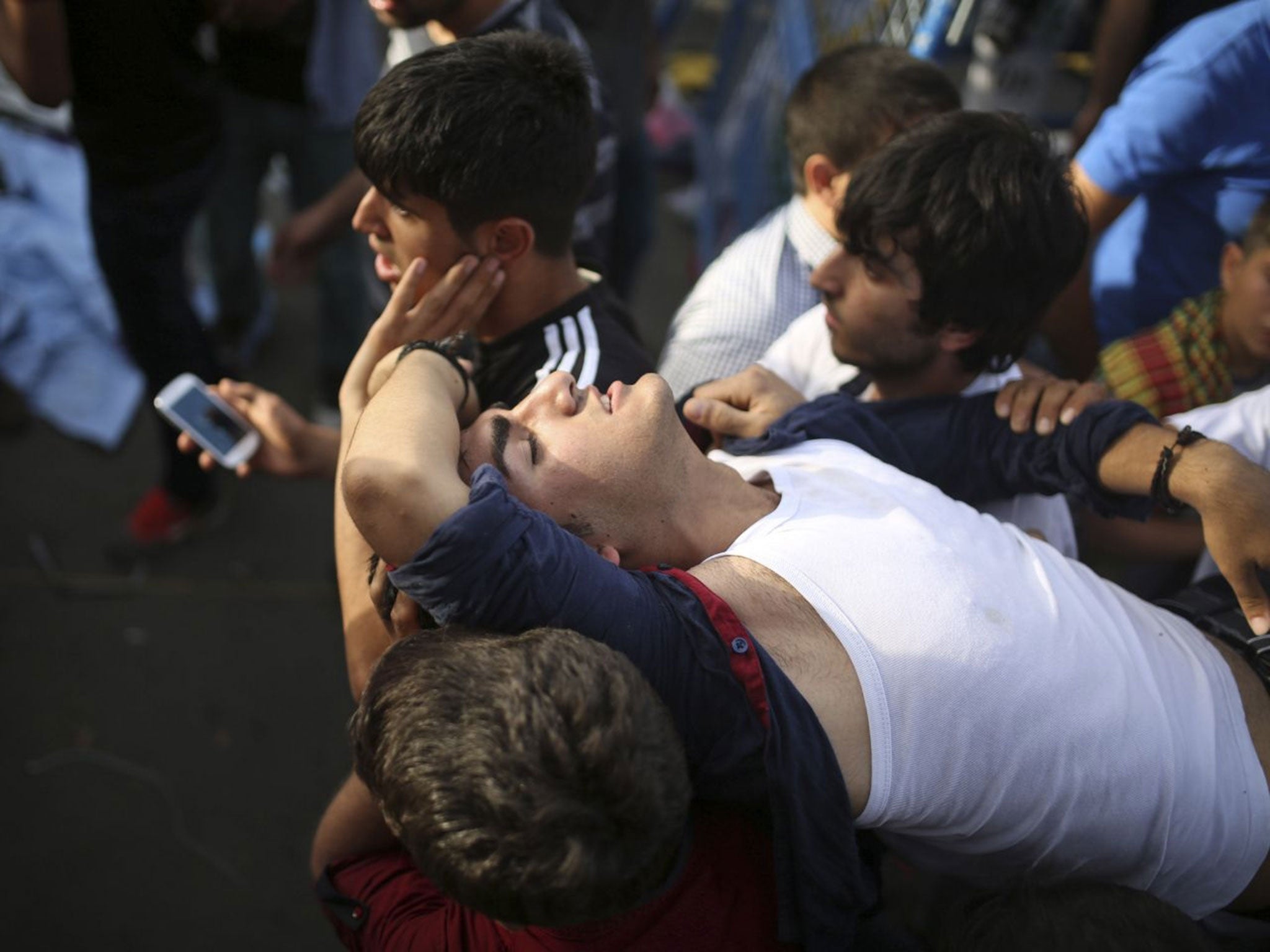Turkey blast: Two dead and 100 injured after explosions hit Kurdish party election rally
The incident comes days before the Turkish general election

Your support helps us to tell the story
From reproductive rights to climate change to Big Tech, The Independent is on the ground when the story is developing. Whether it's investigating the financials of Elon Musk's pro-Trump PAC or producing our latest documentary, 'The A Word', which shines a light on the American women fighting for reproductive rights, we know how important it is to parse out the facts from the messaging.
At such a critical moment in US history, we need reporters on the ground. Your donation allows us to keep sending journalists to speak to both sides of the story.
The Independent is trusted by Americans across the entire political spectrum. And unlike many other quality news outlets, we choose not to lock Americans out of our reporting and analysis with paywalls. We believe quality journalism should be available to everyone, paid for by those who can afford it.
Your support makes all the difference.Two people died and more than 100 were injured when two explosions ripped through a pro-Kurdish election rally in south east Turkey.
Tayyip Erdogan, the Turkish President, described the explosions as a “provocation” designed to undermine peace in the run up to Sunday's Parliamentary election.
His comments appeared to confirm fears the blasts were caused by bombs rather than faulty electrical equipment as the authorities initially claimed.
He said in a statement in which he expressed sadness for the victims that an investigation has been launched to find out who was responsible.

The explosions went off as tens of thousands of people gathered in Diyarbakir for a rally organised by the pro-Kurdish Peoples' Democratic Party (HDP).
Guy Martin, a British photographer who witnessed the devastation, told the Reuters news agency that the blasts, which happened five minutes apart, originated in a rubbish bin and a power generator.
"It was a heart-shaking, rib cage-shaking noise," he said of one of the blasts. “The most terrifying thing is that crush of people. It was chaos, I couldn't move, people were panicking."
One of the explosions went off close to a parade ground shortly before HDP Chairman Selahattin Demirtas was to address the crowd. Police fired water cannon to disperse people who remained at the parade ground after the explosion.
Demirtas urged followers to remain calm and said: "We don't know the cause of the blast. It is thought-provoking that this occurred so close to the election.”
Television footage showed people carrying the injured on stretchers as organisers of the rally for the pro-Kurdish HDP announced on loudspeakers that the explosion had been caused by a fault in a power generator.
Tensions have been high in the run up to the election between the HDP and the AK Party which has held a majority since 2002 but could, polls suggest, be ousted on Sunday. The HDP hopes to win its first seats.
Demirtas has said his party has been the target of more than 70 violent attacks during the campaign and two days ago nationalists clashed with HDP supporters at a rally in the northern town of Erzurum.
President Erdogan, who used to head the AK Party, has accused the HDP of being a front for the Kurdistan Workers' Party (PKK), which took up arms in 1984 in an insurgency that killed 40,000 people. Jailed PKK leader Abdullah Ocalan and Ankara launched peace talks more than two years ago.
If the HDP succeeds in its aim to reach the 10 per cent threshold needed to enter parliament in tomorrow’s elections, it will be a serious blow to the AKP’s goal to create the super-majority needed to change the constitution and grant Mr Erdogan more presidential powers.
One of the AKP’s main election strategies is to harness the powers of social media and in doing so it has set up the New Turkey Digital Office where 180 content-makers, monitors and field communicators work in shifts 24 hours a day to spread positive messages about the party on Twitter, Facebook, YouTube and almost every other social media network.
Supporters have hailed it as the AKP’s attempt to counteract the thousands of Gezi Park online activists who used the social media platform to organise the protests that hit the government two years ago. However, critics compare it to a Putinesque troll machine.
Gokhan Yucel, the young Oxford-educated head of President Recep Tayyip Erdogan’s “digital army”, prefers to think of it as more like Obama’s social media strategy circa 2008.
“I am not the chief troll,” says a weary Mr Yucel, clearly tired of the question. “Look, we’re not hiding anything. If we were trolling, I wouldn’t invite journalists here.”
Join our commenting forum
Join thought-provoking conversations, follow other Independent readers and see their replies
Comments